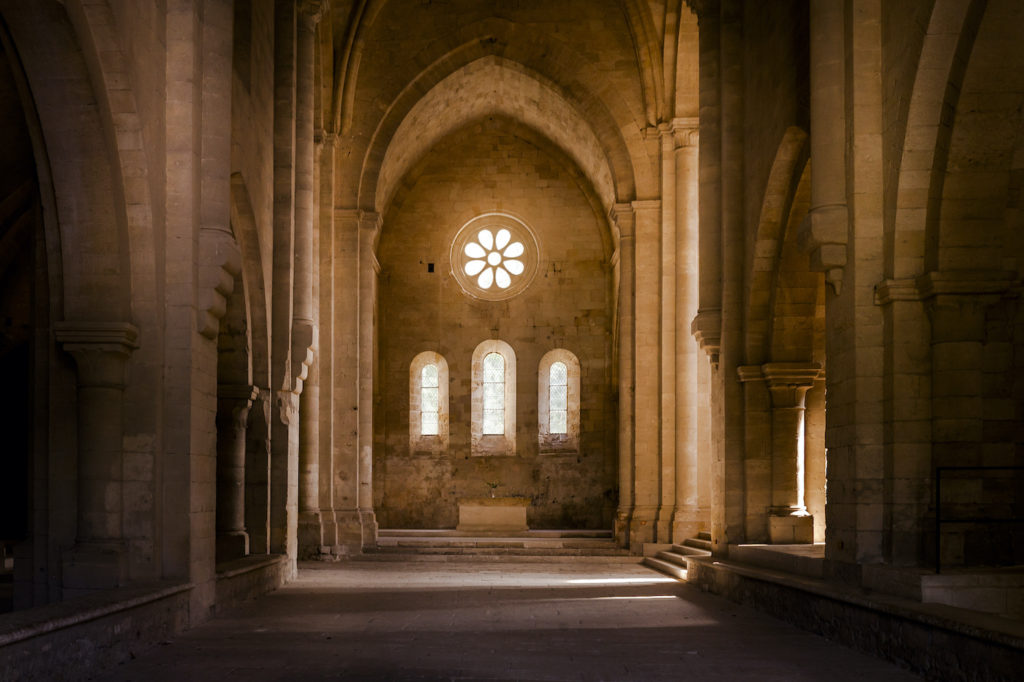The New Atheists are old. While some might pine for Christopher Hitchens’s wit or listen to Sam Harris’s alt-right podcasts, they have mostly been swept into the dustbin of the George W. Bush era. Richard Dawkins is the most emblematic of this decline. Never a great thinker, he is now widely mocked for his tweets that show a lack of understanding not only of religion but also of literature and the human condition. He has run afoul of the current zeitgeist and had his “American Humanist of the Year” award revoked for his tweets on transgenderism. David Bentley Hart wrote in First Things that the New Atheists were so “intellectually and morally trivial” that at best they should be “classified as just a form of light entertainment.” As light entertainment, they have aged poorly.
So why write about them now, when they are being canceled by the left and forgotten by everyone else? Because the New Atheists have been rather successful, and Christians should learn from their success. While declining rates of religiosity predate them, these rates began to accelerate rapidly when their books were bestsellers. The “Nones” are the only growing “religious” group in the U.S. This decline is particularly marked in the young, whether they be the Millennials who arrived in college when the New Atheists were taking off or the Gen Z youth who saw their parents reading God Is Not Great. When I consider my peers, only one of my college friends still attends Mass on Sunday. The kids of the rest are not baptized and will grow up without knowledge of Christ.
Strange as it may seem, the New Atheists’ recent collapse in popularity is actually a success story. People are no longer reading Dawkins precisely because they have been convinced. They don’t need or want God. But this state of affairs need not be permanent. The New Atheists illustrated the power of intellectual work to change the lives of ordinary people. This is a lesson Christians can incorporate into their own approach to public life.
The New Atheists’ Mass Influence
Start your day with Public Discourse
Sign up and get our daily essays sent straight to your inbox.There are many reasons for rapid secularization, but I think we should include the New Atheists as one of them. I am loath to do so, for the idea that the movie Religulous impacted people’s lives is depressing. Nevertheless, the correspondence between this movement and the accelerated decline in religion, the rise of the Nones, and the increase of those identifying as atheists is telling.
Correlation is not causation, but for a few key years, the New Atheists were everywhere. Their approach ranged from the mockery of Maher and Hitchens, to the sophomoric arguments of Dawkins, to the more rigorous philosophical works of Daniel Dennett. Their books may not have been good, but they were read. If we believe that ideas matter, then we should take ideas seriously, even bad ones. When you have a mass phenomenon like the New Atheists that corresponds with the rapid rejection of religion, it is not unreasonable to think that they were involved in that shift.
What kind of impact did they have, then? The success of the New Atheists lay in taking generally held prejudices and exploiting them to forge a consensus regarding religion, especially regarding the science–religion binary. The idea that these two facets of human knowing are irreconcilable preexisted the New Atheists, but they pushed it hard and publicly. Among my college students, the default position is to think that one must choose between faith and science. Reasoning about God is treated prima facie as impossible. Faith, if allowed, is emotion-based. The proliferation of creedal claims about “believing in science” indicates the New Atheists’ lasting impact, particularly when believing in science seems to preclude believing in God.
Further, the New Atheists successfully advanced the view that religion is the cause of violence. This was particularly effective during the Bush administration in light of 9/11, the War on Terror, the ongoing Israeli–Palestinian conflict, and the still recent Troubles in Northern Ireland. As American Christians celebrated “putting a boot in your a**” as a foreign policy, people became convinced that religion was the primary source of violence. As the Bush years wore on, it seemed religion was to blame for self-styled crusaders fighting jihadists (even if Christopher Hitchens was one of the biggest advocates of such a war).
The New Atheists’ books may not have been good, but they were read. If we believe that ideas matter, then we should take ideas seriously, even bad ones.
The Dilution of Religion
Meanwhile, American religious life had been softening for years, as seen in the banality of much of religious practice. I think here of a banner I recently saw at a Presbyterian Church: “Act justly, love mercy, walk humbly.” It is a paraphrase of an important passage from the prophet Micah. What is missing? We are to do these things with God. Subtract the God part, and you do not get Christian therapeutic deism. You just get therapy.
While some viewed religion as a violent opposition to modernity, the overall experience of religion was of a beige and lifeless space of felt banners and mutual appreciation. Toss in the rise of the LGBTQ movement and the Church sex abuse scandal, and the New Atheists arrived at the right time with the rhetorically right arguments. Various forces had weakened religion, and the New Atheists validated people’s growing wariness of it.
They seized the moment on film, radio, TV, the nascent Internet, and in print. They may not have convinced many by the merits of their arguments, but the New Atheists exposed the irreligiosity already operative in American life. What had been latent became patent.
This is illustrated in the movie Calvary, not by the protagonist, played by Brendan Gleeson, but by his assistant priest, Fr. Leary. Fr. Leary gives no indication that the faith or priesthood matters to him as he drifts through the film. When challenged with the question “Why are you a priest at all?” he stares blankly with no answer at hand. As Brendan Gleeson’s character puts it, Leary has no integrity. At the end of the movie, he is shown reading The God Delusion, his face confused but interested. The emptiness of his faith is exposed by the challenge of the New Atheist. On the verge of unbelief, the book offers the final nudge. He had already left the Church and priesthood; he just didn’t know it yet.
A lot of American religion in the late nineties was like that of Fr. Leary, no longer able to testify about why anyone should give their life to Christ and the Church. In a deep sense, we lacked integrity. Faith had become a cultural norm, barely held on to. In After Virtue, MacIntyre argues that ethical reasoning collapsed after the Enlightenment. He compares it with the ease with which King Kamehameha II was able to end the cultural taboos of Hawaii. The taboos had lost any grounding or justification, and people lived by them unthinkingly. He writes, “Deprive the taboo rules of their original context, and they at once are apt to appear as arbitrary.” If we lack understanding or commitment, “the task of justification [of taboo rules] becomes impossible.”
The New Atheists were the catalysts for exposing the emptiness of people’s faith. Their work made it culturally acceptable to be a None or even an atheist because people were already basically atheists.
These rules, as forms of life, need only be exposed as groundless and they crumble. As King Kamehameha II had done with Hawaiian taboos, so too the New Atheists did for many people’s religious life. They were the catalysts for exposing the emptiness of people’s faith. Their work made it culturally acceptable to be a None or even an atheist because people were already basically atheists. Like Fr. Leary, we looked up from The God Delusion and suddenly realized we hadn’t believed in years.
The New Atheists’ Unexpected Gift
If I am right that New Atheists were a catalyst for the decline of faith and the rise of the Nones, then Christians will need to learn from them. We shouldn’t ignore intellectual fads but take them seriously, engage them, learn from them, and refute them. More importantly, we need to recognize the power of implicitly held beliefs prior to their being “weaponized.” The New Atheists exploited the supposed irreconcilability of science and religion. They led people to believe that they must choose between them, and many choose a lawn sign that says, “I believe in science.”
This is why intellectual genealogies—such as MacIntyre’s—matter so much. Christians need to do the work of refuting false narratives about the faith. This might include showing the essential place of natural law and Christianity in the African American tradition (Vincent Lloyd), showing the original flaws in liberalism (Patrick Deneen), or correcting false narratives about science and religion (Christopher Clemens). Implicit assumptions have a history that needs to be reconsidered, critiqued, and corrected. The longer they linger in the cultural milieu, the more deeply entrenched they become and the more easily they can be exploited.
But this brings with it good news, especially for those of us who write for places like Public Discourse. If the New Atheists were able to convince people to leave, then we too might be able to convince some to come back. Ideas and writing can change lives. If the New Atheists did it, then we Christian writers can do it too, helping write people back into the faith.
I am not Catholic because I am Irish. I am Catholic because the true science, the scientia of God and the saints, is found within the Church. Believing in this science, we can do the work of Christ in the world.
We also need to recognize the unexpected gift of the New Atheists. The Church is the home of sinners and saints, the fervent and the lukewarm. This is a good thing. And yet, the New Atheists helpfully unmasked our too often groundless religiosity. In challenging Christians, they helped force a choice not between faith and science but between Christ and the world. Those of us called by Christ can more fully commit to evangelizing the world from within our more deeply grounded faith.
I am not Catholic because I am Irish. I am Catholic because the true science, the scientia of God and the saints, is found within the Church. Believing in this science, we can do the work of Christ in the world. The good of being a smaller, purer church with fewer Fr. Learys is that we can work to invite people back, even former Learys. In a post-Christian world, we can hope to be Christians with integrity and so a saving remnant. The strange gift of the soon-to-be-forgotten Old Atheists may end up being the deeper faith and evangelical zeal of the New Theists.













